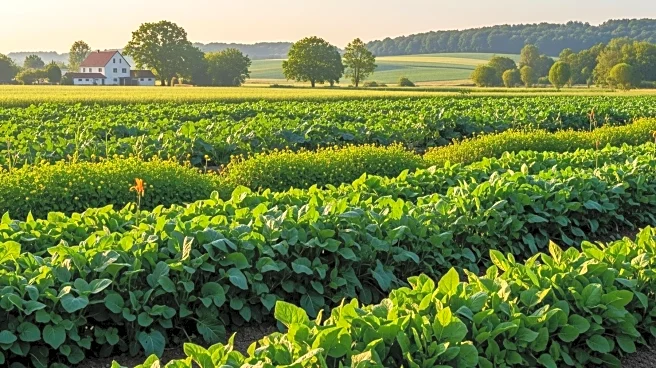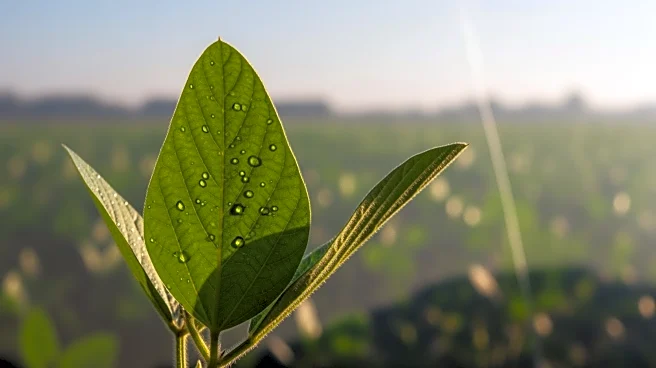What is the story about?
What's Happening?
The Slow Food President, Edward Mukiibi, has highlighted the urgent need to reshape the Common Agricultural Policy (CAP) to better support agroecology. As the CAP for 2027 is being defined, Mukiibi points out that the current financial structure is failing sustainable agriculture. The CAP, once a major part of the European budget, now disproportionately benefits large agribusinesses, leaving many sustainable farmers struggling. This has led to the disappearance of over 5 million farms in the EU since 2005. Mukiibi emphasizes that the CAP's current form exacerbates the climate crisis and undermines small farmers, with 80% of funds going to the largest 20% of farms. The proposed changes to the CAP budget, including merging agricultural and rural support into a single financial instrument, raise concerns about the future allocation of funds and the potential reduction in environmental and rural development support.
Why It's Important?
The restructuring of the CAP is crucial for the future of sustainable agriculture and environmental protection in the EU. The current allocation of funds favors large agribusinesses, which can lead to overproduction and cheap exports that harm local farmers in developing countries. This 'dumping' effect undermines food sovereignty and exacerbates poverty. The proposed changes could further reduce biodiversity protection and increase CO2 emissions, impacting global climate efforts. The decisions made in the CAP restructuring will have significant implications for rural economies, food security, and environmental sustainability, both within the EU and globally.
What's Next?
The European Commission's proposal to integrate CAP funds with other financial instruments will be debated, with member states having discretion over fund allocation. This raises concerns about the prioritization of sustainable farming practices and environmental protection. Stakeholders, including sustainable farmers and environmental advocates, are likely to push for a CAP that genuinely supports agroecology and addresses the needs of small farmers. The outcome of these discussions will shape the future of European agriculture and its impact on global food systems.














